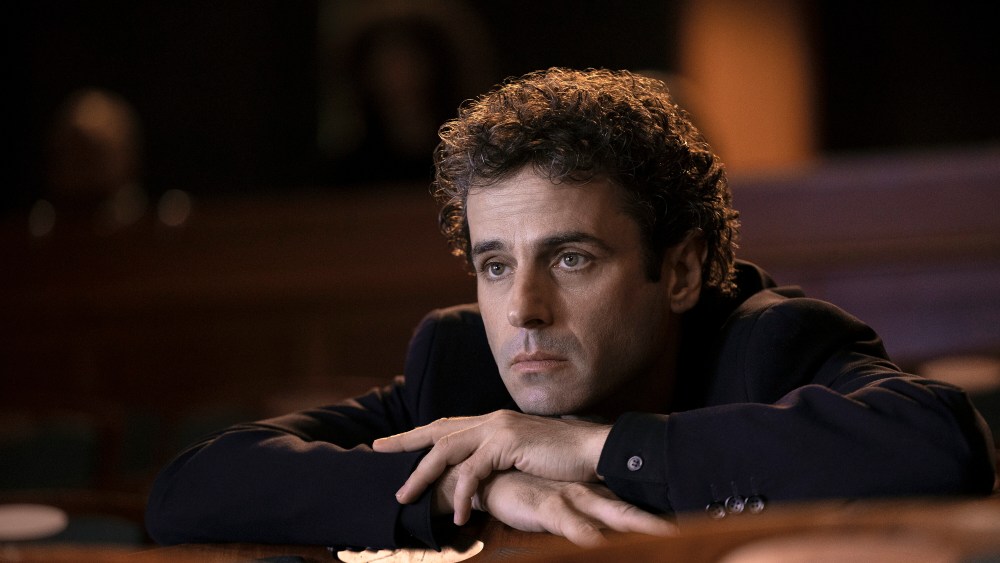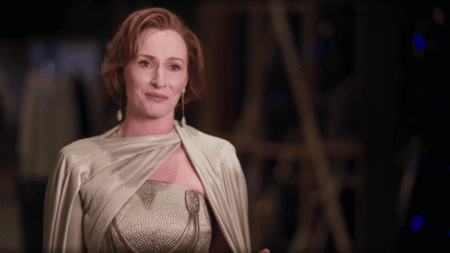Light years away from Stars Hollow and the comedy clubs of 1950s New York City, Amy Sherman-Palladino and Daniel Palladino’s latest dramedy, “Étoile,” delves into the milieu of professional ballet. The series spotlights New York City’s Metropolitan Ballet Theatre, run by executive director Jack McMillan (Luke Kirby), and Paris’ Le Ballet National, managed by interim director Geneviève Lavigne (Charlotte Gainsbourg). Amid sluggish ticket sales, a post-COVID dancer exodus and a dwindling audience, Jack and Geneviève hatch an ambitious plan to swap their top performers for one year to bring more visibility to both companies. While the dancing is stunning, and some characters have a few amusing traits, “Étoile” is an exhausting show centering a slew of insufferable people obsessed with hearing themselves speak.
“Étoile,” which refers to a company’s principal dancer, opens as a young girl, SuSu Li (LaMay Zhang), dances alone in the darkened practice room at the Metropolitan Ballet. Elsewhere, in a Manhattan nightclub, Jack and Geneviève are partying in an attempt to de-stress ahead of their upcoming meeting. The next day, despite the previous evening’s festivities, Jack isn’t quite on board when Geneviève presents her idea to trade their biggest talents. It’s a bid bankrolled by the outlandish millionaire Crispin Shamblee (Simon Callow), whom Jack despises. However, the MBT director changes his mind after convincing his Parisian colleague to lend him her most renowned (and difficult) étoile, Cheyenne Toussant (Lou De Laâge). From there, the pair scramble to prepare for the forthcoming dance season as the newly exchanged dancers try to find safe spaces in unfamiliar environments.
The Palladinos are known for overstuffed scripts and rapid-fire dialogue in “Gilmore Girls” and the Emmy-winning “The Marvelous Mrs. Maisel,” displayed here in English and French. While speedy banter works for those who are likable, Jack, Geneviève and Cheyenne are such grating personalities that the entire series feels clunky, as if the audience is being held hostage in this world instead of welcomed into it. Moreover, the structure of the eight episodes is bizarre. Instead of a seamless season, the narrative operates like two different acts. The end of Episode 4 could have easily been the stopping point. The remaining episodes feel even more frenzied than the previous ones and introduce random characters, unconvincing love affairs (past and present) and storylines that appear out of nowhere. Instead of being folded into the overall story, the season’s second half feels like an afterthought — or another series altogether.
Meanwhile, the few enjoyable figures in “Étoile” remain on the fringes. Mishi Duplessis (Taïs Vinolo), a ballerina previously booted out of Le Ballet National by Geneviève and then dragged back in the exchange, has the most digestible arc. In Vinolo’s Mishi, viewers meet a young woman whose entire existence revolves around ballet and who wants deeply to uncover who she is outside of dance and away from her overbearing mother’s suffocating presence. Like Mishi, Tobias Bell (Gideon Glick) is also captivating. An eccentric, headphones-obsessed choreographer shipped off to France against his will and without his treasured Crest toothpaste, he moves to the beat of his own drum and is one of the series’ only genuine delights.
As majestic and graceful as ballet is, “Étoile” is lacking. The show is so ungainly jumping inelegantly between New York and France, showcasing obnoxious people who take pleasure in shouting at each other. Though the Palladinos try to humanize the main characters by offering glimpses into their personal lives, there aren’t enough reasonable interactions to foster true connections. While “Gilmore Girls” and “Mrs. Maisel” captivate audiences, “Étoile” never reaches such heights.
The eight episodes of “Étoile” premiere April 24 on Prime Video.
Read the full article here








